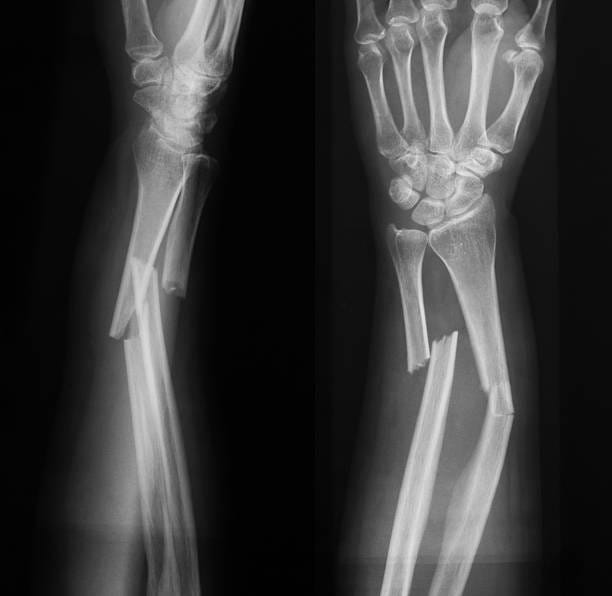If you are trans, the doctor may need to ask if you are receiving medication such as puberty blockers or exogenous hormones such as oestrogen or testosterone, even for seemingly unrelated issues like a broken arm.
This has been described as ‘trans broken arm syndrome’ with the implication that it is invasive or unnecessary to ask about a patient's gender identity or transition status when treating something unconnected such as a broken arm. It has sometimes been referred to as medical discrimination against trans patients. In fact patients should be reassured that they are being asked these questions which help us care for you according to high ethical standards.
The 4 principles of medical ethics:
Autonomy
This ethical principle of autonomy describes the right of competent adults to make informed decisions about their own medical care.
While patients may feel disrespected or alienated by questions about their transition these questions are essential for informed clinical decision making. The fracture may not be related to oestrogen, but that can only be explored by taking a thorough medical history, which is where the other principles come into play.
Non-maleficence
Non-maleficence is a doctor’s obligation to avoid causing harms to patients, such as recognising the risks associated with medical transition, because patients on cross-sex hormones face an increased risk of bone fracture:
· Care guidelines from the Tavistock and Portman NHS Trust for patients on oestrogen state that monitoring of ‘bone health’ is required if the patient has significant risk factors for osteoporosis or have had a significant break from sex steroid treatment (>24 months).
· Fracture Risk Using Long-Term Hormonal Treatment: A Nationwide Cohort Study showed that fracture risk was higher in older men taking oestrogen compared with age‐matched reference men.
· Systematic Review of the Long-Term Effects of Transgender Hormone Therapy on Bone Markers and Bone Mineral Density and Their Potential Effects in Implant Therapy found long-term reduced bone density in patients taking oestrogen.
· A Review of Treatment for Pediatric Gender Dysphoria highlighted that medical transition can increase the risk of fracture due to effects on bone density.
Beneficence
This principle requires doctors to act in the best interests of patients, aiming to avoid patient harms and actively to seek to improve a patient’s well-being, balancing the potential benefits of treatment against the potential risks. This follows the guidelines as laid out by The GMC.
The concern about the long-term adverse effects of cross sex hormone makes comprehensive history-taking vital.
If a fracture has been caused by low bone density as a consequence of cross sex hormones then consideration of a change of treatment and a referral for a bone density scan to look for for osteoporosis would be best practice. If this is confirmed then we must discuss what treatment is in the patients’ best interests, and this could be to stop the hormones
Justice
Justice considers legal frameworks and ethical principles when making healthcare decisions.
Fair and equal treatment requires that trans identifying patients receive the same thorough history taking as other patients with similar conditions, such as asking a postmenopausal woman about HRT. Failing to ask relevant questions may itself be discriminatory because these medications could be causing osteoporosis which caused the broken arm.
Medical consent is a legal principle in the UK. The GMC requires us to ‘discuss the risks as well as the benefits’ and to admit to the patient when something has gone wrong.
We question whether patients who seek medical transition can be properly informed of the known long-term risks, as per our blog on informed consent. The lack of robust medical evidence around these interventions, the known harms and failure to improve mental health outcomes means that patients cannot be fully informed and therefore cannot truly give informed consent. Failure to explain this lack of knowledge to a patient further undermines consent.
Asking about trans status is ethical and essential
Ethical medical care requires a full patient history to avoid ‘iatrogenic harms’ (a disease or problem caused by medical treatment or by a doctor). Asking about trans identity is not inherently discriminatory. Doctors must act within ethical and legal obligations by thoroughly investigating all potential contributing factors to a patient’s presenting complaint.






Good article but as far as I know this is just a drop in the ocean. There is a laundry list of major diseases where incidence, presentation and severity are strongly influenced by sex including heart diseases and many kinda of cancer. Good health care requires knowing the sex of the patient.
Trans people deserve holistic safe care just like everyone else. It is sad and irresponsible that activists in this space try to undermine medical and health professionals from providing optimum care. They are openly driving barriers, distrust and division that may stop trans people attending health care when they need it.